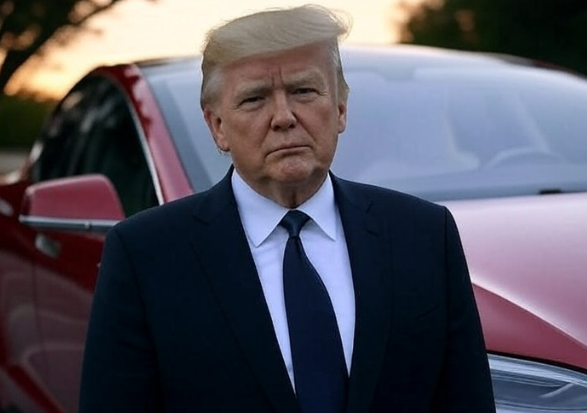In early 2025, foreign investment (FDI) in the United States dropped to its lowest level in over a year due to uncertainty around President Trump’s proposed tariffs. This article explores the reasons behind the decline, its economic implications, and the potential rebound driven by major upcoming investments from Japanese and South Korean companies like Nippon Steel and Hyundai.
Foreign Investment in the U.S Drops Sharply to $52.8 Billion In Early 2025
In early 2025, the United States witnessed a significant decline in foreign investment, marking the lowest level in over a year. According to newly released data, foreign direct investment (FDI) into the US dropped sharply to $52.8 billion in the first quarter of 2025, a steep fall from the $79.9 billion recorded at the end of 2024. This decline of over $27 billion represents the lowest FDI level since late 2022, raising concerns about economic momentum, particularly in regions dependent on global manufacturing.
The sudden dip in investment is largely attributed to growing uncertainty surrounding President Donald Trump’s proposed economic and trade policies. With the administration signaling the possibility of new tariff increases, many global companies have chosen to delay or reassess their investment strategies in the US. These potential trade disruptions have created a climate of caution, prompting international businesses to pause decisions until there is more clarity on future trade regulations.
This slowdown in foreign investment is significant because FDI often leads to the creation of jobs, the development of local infrastructure, and an overall boost to regional economies. When global firms reduce their investment activities, it can hamper local development and limit employment opportunities, especially in manufacturing hubs that rely heavily on foreign capital.
Despite this downturn, there are signs of hope. In a major deal expected to lift future FDI figures, Japanese steelmaker Nippon Steel finalized its $14.9 billion acquisition of US Steel. This acquisition stands out as one of the largest foreign investments in recent years and is anticipated to positively influence upcoming economic reports.
Adding to the optimism, South Korean conglomerates Hyundai Motor and Hyundai Steel have pledged a combined $21 billion in new manufacturing investments across the United States. The announcement was accompanied by a public statement emphasizing the scale and impact of these investments. A significant portion—$6 billion—will be directed toward strengthening the US supply chain, covering everything from steel and auto parts to finished vehicles.
One of the most notable projects under this investment plan is Hyundai Steel’s commitment to build a new multi-billion dollar facility in Louisiana. This plant is expected to generate approximately 1,300 American jobs and will play a crucial role in making the US automotive supply chain more self-reliant and resilient.
Meanwhile, another concerning development is the widening of the US current account deficit, which reached a record $450.2 billion in the first quarter of 2025. A major reason for this spike is that American businesses accelerated imports to get ahead of expected tariff hikes, leading to a temporary imbalance in trade and investment flows.
In summary, while the start of 2025 has seen a worrying decline in foreign investment into the US, several massive projects led by Japanese and South Korean companies offer hope for a rebound. Economists believe that if these investments proceed as planned, the US could see a return to higher FDI levels as early as this summer, potentially reversing the short-term slowdown and reigniting growth in manufacturing regions across the country.
Disclaimer:
The information presented in this article is based on available data and public announcements as of early 2025. It is intended for informational purposes only and should not be construed as financial or investment advice. Readers are encouraged to conduct their own research or consult with a financial expert before making any investment decisions.

